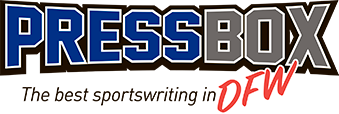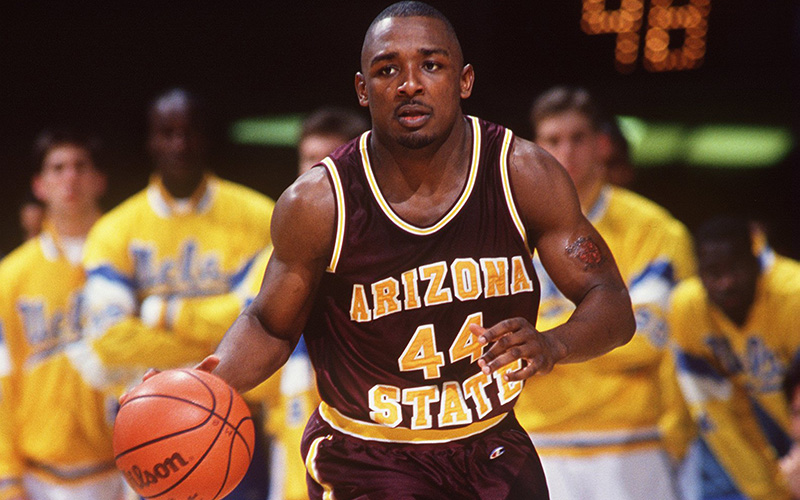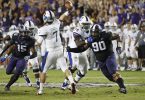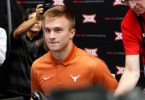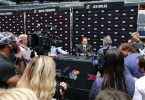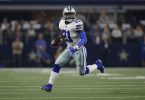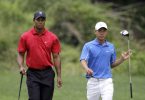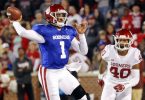It was greed – and gambling – that destroyed Stevin “Headake” Smith’s basketball career.
Turned what should have been a $20 million job into a $20,000 bribe. Traded multi-year contracts for a one-year prison sentence. Tarnished an All-American reputation into one wholly unhireable.
Now, the Dallas native who 25 years ago was at the heart of the one of America’s most infamous point-shaving scandals says he sees the next victim of sports betting: sports.
“It’s a dangerous road for all these leagues,” Smith said in a phone interview from his Metroplex home last week. “You just never know who’s in on the fix. Could be a player. A coach. A ref. It’s hard for me to enjoy games now because I can see how much the point spread is in play. People just don’t understand. And now that there are loose laws and teams moving to Las Vegas, man, it’s like open season. The easy access makes it even more dangerous. Something’s going to happen at some point. No doubt.”
The NHL already has a franchise in the world’s betting mecca. The NFL’s Raiders are moving there in 2020. The NBA hosts summer leagues and an All-Star Game in Sin City, and its commissioner talks openly about relaxing restrictions on wagering on its games. ESPN has begun airing shows catering specifically to sports gambling. In the past year, six states – Mississippi is the closest to Texas – have passed laws legalizing sports betting. Amidst the changing culture, Smith continues telling his cautionary tale to anyone who will listen.
His congregation: The Dallas kids in his N.O.W. (No Opportunity Wasted) Organization and the basketball players at Mountain View Community College, where he is the assistant coach.
His sermon: The deal he made with the Sun Devils.
Smith got his “Headake” nickname from his mom, Eunice, who loved her problem child but couldn’t fit the proper spelling on Texas’ then-six-letter limit license plate. Sturdy physically with spectacular skills as a scoring point guard, he flourished in Pleasant Grove, starred at Spruce High School and chose Arizona State.
Before arriving in Tempe, Smith was introduced to the perks of life as a coddled, coveted, college star. While being recruited by Arizona State, a limousine showed up at his house with courtside seats to a Dallas Mavericks game. It was sent by Roy Tarpley, who wanted to personally endorse his former coach at Michigan, Bill Frieder, who was then the ASU coach.
Says Smith, “I caught on to the system pretty quick.”
He tore up the Pac 10 Conference, averaging 19 points and six assists, earning all-conference honors as a freshman in 1991 and leading ASU to its first NCAA Tournament in more than a decade. He was named captain and, as a senior, an All-American. He finished as the school’s all-time leading scorer and record-holder for most 3-pointers. He broke records held by Fat Lever, Alton Lister and Byron Scott, and was destined to be a Top 10 NBA draft pick.
As a senior in 1994, he was named ASU’s Male Student Athlete of the Year, beating out a golfer named Phil Mickelson and a quarterback named Jake Plummer.
“I had it all, right in front of me,” he says. “I beat out those guys, had a 3.5 GPA and was going to get drafted high. I’ve still got the trophy in my house, but … ”
On the way to fame and fortune and the NBA, Headake had a brain fart.
As a senior – with a lucrative, multi-million-dollar contract just months away – Smith was seduced by greed, dangled by friend Benny Silman. He was a sports bettor who made the quick trips to Vegas, found a bookie and eventually formed relationships with bank-rolling ties to mob families based in Chicago and New Jersey. Silman presented Smith an offer he couldn’t refuse: Score all the points you want. Win all the games you need. Just keep the final score within the point spread.
Already lavished with illegal, under-the-table cars, jewelry, clothes, cash and an apartment by ASU boosters, Smith lunged for another layup. On Jan. 28, 1994, the Sun Devils were 15-point favorites against Oregon State. Smith tied a conference record with 10 3-pointers and scored 39 points. The secret – the “point shaving” – was with his orchestrated, step-slow defense that allowed the Beavers to score points and, in turn, keep the game relatively close.
The result: Arizona State won, but only by six points. The mob bettors, tipped off that Smith would shave points, happily collected on their Oregon State plus-15 wagers. After the game, Silman presented Smith with a Nike shoe box filled with $20,000 cash.
“I was just immature,” Smith says. “But I’ll say it to this day: Yes, I took the money. But I also played my butt off. I put 39 on Brent Barry that night, so it wasn’t like I just quit on my team.”
Smith was hooked.
He shaved points in three more games, even recruiting teammate Isaac Burton to help the scheme. But the radical amounts suddenly bet on Sun Devils games – one against Washington that typically attracted $50,000 drew more than $1 million – caught the eye of Vegas sportsbooks, who alerted the FBI.
Rumors were rampant. Smith’s name was mentioned. Even though no formal charges were made, the damage was done. Smith played well at a pre-draft camp in Chicago, and expected to be picked in the first round in June 1994. Friends and family – all oblivious to Smith’s shenanigans – gathered at his house in southeast Dallas.
The phone never rang.
“The more teams passed on me,” Smith said, “the more I knew that they somehow knew.”
Undrafted by the NBA, Smith played in Spain and then the Continental Basketball Association. In the CBA Finals, he, ironically, found himself in a game being officiated by Tim Donaghy, who years later would spend 11 months in federal prison after admitting to fixing point spreads in NBA games he officiated.
Smith bounced around in the CBA for three seasons, with nary a good night’s sleep.
“I knew what I’d done wasn’t just going to disappear,” he says. “I had nightmares, daydreams … I thought about it all the time.”
In 1997 he played well enough for the CBA team in Sioux City, S.D., that he was finally contacted by an NBA team. Yep, his hometown Mavericks. He signed a 10-day contract, scored 12 points in limited, garbage-time minutes, signed another contract and finished the season in Dallas.
But on the heels of the call he’d always dreamed of came the knock he’d ultimately feared. In the summer of 1997 the FBI showed up at Smith’s door, took him to Pemberton Hills Recreation Center and unfurled a poster with mug shots and timelines of the point-shaving scheme that stretched from the East Coast to the Arizona desert.
Silman was caught and sentenced to eight years in prison. Smith eventually pleaded guilty to conspiracy to commit sports bribery and served one year and one day behind bars in Big Spring Correctional Center, situated between nowhere (Abilene) and BFE (Odessa) in the plains of West Texas. He didn’t sleep the first three nights.
“I had to accept that I was in prison for this white-collar crime,” he says. “I had to accept that I’d ruined my future for less cash than I would have made my first week in the NBA. After some time, I decided I’d reach other kids, so they could avoid going down the same road.”
Free from prison but shunned by the NBA, Smith finished his 15-season pro career laboring with teams in France, Israel, Russia, Greece and Italy. Upon retirement in 2008, he returned to Dallas and founded N.O.W. He hopes his next step is head coach at Mountain View.
“I’m not blaming anyone but myself, but I’m trying to be that mentor and father figure that I never had,” says Smith, now 47, a husband and father of three adult daughters.
He conducts anti-gambling seminars for the NCAA, speaking most recently at the University of Minnesota last November. And at N.O.W., he’s prepping potential stars such as Kaden Archie, a star at Midlothian High School who recently transferred from TCU to UT-El Paso.
“A smart man learns from his own mistakes. A wise man learns from the mistakes of others. I’m telling my story, being the example so these kids can grow up to be wise men,” Smith says. “Betting is everywhere in sports. Everywhere in society. Tiger and Phil playing golf on TV. Poker tournaments. NBA players trying half-court shots at shoot-arounds for hundreds of dollars. Kids have to be educated, have to prepared to handle that kind of environment so temptation doesn’t swallow them up like it did me.”
Turns out the worst bet Smith made, was not betting on himself.
